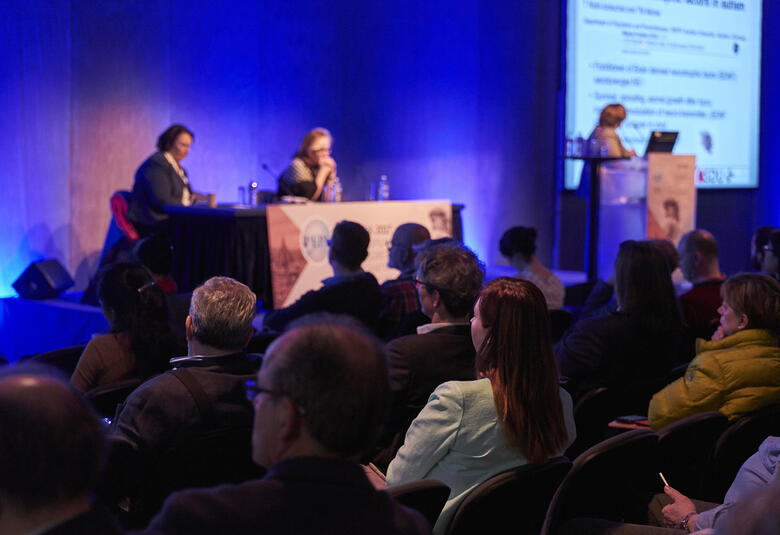
ECNP 2015 Neuropharmacology Award
Faster antidepressants in future? The answer’s yes!
The 2015 ECNP Neuropharmacology Award (Basic Science) was given to Professor Francesc Artigas, Instituto de Investigaciones Biomédicas de Barcelona, Spain in recognition of his outstanding work in the field of systems neuropharmacology. Following the formal presentation of the award by ECNP President Guy Goodwin, Professor Artigas gave a lecture entitled ‘Can we improve speed and efficacy of antidepressant treatments?’
In the future it appears highly likely that the speed and efficacy of antidepressant therapies will be improved
The short answer to this question is “yes!” And three lines of investigation are currently being researched by Professor Artigas and his group.
Faster, faster, faster...
Unlike classic antidepressant therapies, rapidly-acting therapies such as ketamine, PCP and DBS act by modulating the function of glutaminergic neurons. By further understanding the mechanism of action of these therapies, this will aid in the development of more rapidly-delivered antidepressants possibly targeted to this system.
Continued basic and clinical research on the classical, monoamine-based antidepressants is also being carried forward apace by various teams to generate faster acting antidepressant agents within this class. The serotonin receptor (SERT) is the target of most antidepressants. By using small interfering RNAs (siRNA) linked to a selective 5HT reuptake blocker to knock down SERT expression, at least in animal models, rapid antidepressant effects have been noted.
Intranasal delivery – not to be sniffed at!
Professor Artigas’s group is also investigating the delivery and targeting of such customised siRNA molecules to the brain via the intranasal route of administration. The nasal epithelium permits the entry of drugs into the CNS via the olfactory and trigeminal pathways, thereby overcoming the limitations sometimes imposed on drug delivery by the blood brain barrier.
Thus, in the future it appears highly likely that the speed and efficacy of antidepressant therapies will be improved. By administering effective therapies sooner to patients at the outset of depression, it is exciting to speculate that chronicity may be avoided.
Our correspondent’s highlights from the symposium are meant as a fair representation of the scientific content presented. The views and opinions expressed on this page do not necessarily reflect those of Lundbeck.


